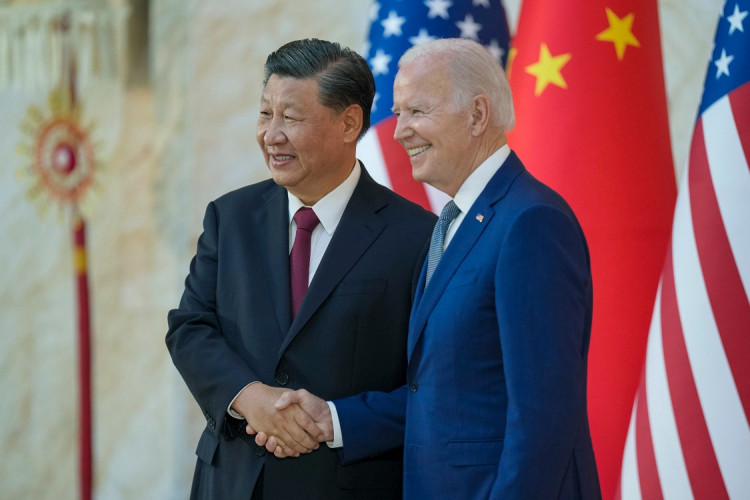Chinese President Xi Jinping's recent visit to the U.S., his first in six years, symbolized a concerted effort to rekindle business ties with American investors and companies. However, his charm offensive faces skepticism amid concerns about China's shifting political landscape and business environment.
During a dinner in San Francisco organized by the U.S.-China Business Council and the National Committee on U.S.-China Relations, attended by CEOs like Apple's Tim Cook and BlackRock's Larry Fink, Xi received a standing ovation for his assurances about fostering a "market-oriented, law-based and world class business environment." Yet, doubts linger among U.S. business leaders and policymakers regarding the feasibility of operating in China under its current regime.
Former Deputy U.S. Trade Representative Robert Holleyman pointed out the gap between Xi's promises and the reality of conducting business in China. Xi's emphasis on China being a "super-large economy and a super-large market" highlights the lure of the Chinese market, but concerns about intellectual property rights, personal security, and unequal treatment in favor of domestic firms overshadow the potential benefits.
Xi's visit also coincided with President Joe Biden's meeting with him in Woodside, California. The leaders discussed critical issues like military communications in the Indo-Pacific region, Taiwan, and human rights concerns. Despite reopening military-to-military communications and discussing Taiwan and China's sovereignty claims in the South China Sea, experts believe the meeting didn't mark a significant breakthrough in resolving strategic mistrust.
Rorry Daniels from the Asia Society Policy Institute described the meeting as an important step in managing the relationship, but not a resolution to the underlying tensions. Biden and Xi's discussions were seen as a balancing act, seeking to ease tensions without yielding on key contentious issues.
Amidst the cautious optimism, some members of the U.S. Congress expressed dissatisfaction. Rep. Mike Gallagher (R-Wis.), for instance, criticized the warm reception of Xi in light of China's actions in Xinjiang.
The skepticism is further compounded by China's recent actions, including raids on foreign firms and revised counter-espionage laws, which have raised alarms within the U.S. business community. Commerce Secretary Gina Raimondo even declared China as "uninvestable" for U.S. businesses in August, highlighting the growing unease.
The U.S.-China trade war, initiated during former President Donald Trump's tenure, continues to hamper investment decisions. Siva Yam, president of the U.S.-China Chamber of Commerce, noted the challenges faced by small and medium-sized enterprises in returning to China.
Xi's San Francisco address avoided major irritants in the U.S.-China relationship, focusing instead on mutual respect for ideological differences and economic cooperation. This approach, while appealing to the business community, overlooks the deep-seated distrust and political disagreements between the two superpowers.
Ultimately, the success of Xi's outreach and Biden's diplomatic engagement with China hinges on addressing the fundamental concerns of the U.S. business community and finding a common ground that benefits both nations economically, without compromising on core values and security interests.





